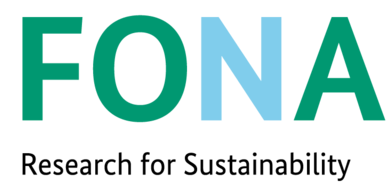Humboldt Tipping Phase 1
Welcome to the first phase of Humboldt Tipping, spanning from 2019-2023. On this page, you can explore information including a summary of each work package (WP) and its members

The proposed project assesses the risk of decreased marine ecosystem productivity as a turning point for the ecological, economic and social systems that are interconnected under the Humboldt Upwelling System (HUS). The system's climate-related productivity is highly variable and affects local livelihoods and global markets.
The project focuses on two marine systems; on the one hand the high seas pelagic system that supplies the Peruvian industrial anchovy fishery with attention to its regional and global impacts through exports to international markets. On the other hand there are the coastal (Independence Bay and Sechura Bay) and insular (Galapagos) systems where artisanal fisheries, aquaculture and ecotourism are key maritime activities for livelihood provision.
With a consortium of biogeochemists, fisheries ecologists, ocean and ecaosystem modellers, economists, social scientists and local communities from both Germany and Peru, we will work to understand the relationships between ecological, social and economic dynamics in the HUS.
More information about the project of the Federal Ministry of Education and Research (BMBF) and the Project Management Agency (DLR) in Germany can be found here:
https://www.dlr.de/pt/en/desktopdefault.aspx/tabid-11212/16307_read-47496/
Overview of the WPs with responsible PIs
(By clicking on the title you will be redirected to the respective WP page)
Work package 1: Biogeochemical/ecological tipping points of the HUS
(PI: Ulf Riebesell, GEOMAR Helmholtz Centre for Ocean Research Kiel)
Work package 2: Pressure-state relationships and fish production in the HUS
(PI: Myron Peck and Saskia Otto, University of Hamburg, UHH)
Work package 3: End-to-end ecosystem modeling of ecological tipping points in the HUS
(PI: Ivy Frenger and Andreas Oschlies, GEOMAR Helmholtz Centre for Ocean Research Kiel)
Work package 4: Regional and global economic consequences of regime shifts in fish production
(PI: Julia Bronnmann, University of Kiel, CAU)
Work package 5: Social-ecological network modeling of coastal benthic habitats and their users
(PI: Achim Schlüter, Leibniz Centre for Tropical Marine Research Bremen, ZMT)
Work package 6: Participatory ecosystem-based management strategies for shifts among pelagic resources in the HUS
(PI: Matthias Wolff, Leibniz Centre for Tropical Marine Research Bremen, ZMT)
Work package 7: Stakeholder Engagement and Governance Strategies
(PI: Michael Flitner, University of Bremen)
Work package 8: Project Management
(PI: Jörn Schmidt, University of Kiel, CAU)
Advisory board
Prof. Dr. Francisco Chavéz | MBARI, USA
Dr. Beth Fulton | CSIRO, Australia
Dr. Yunne Shin | IRD, France
Prof. Dr. Frank Asche | UC Berkeley, USA
Dr. Philine Oft | GIZ, Peru


